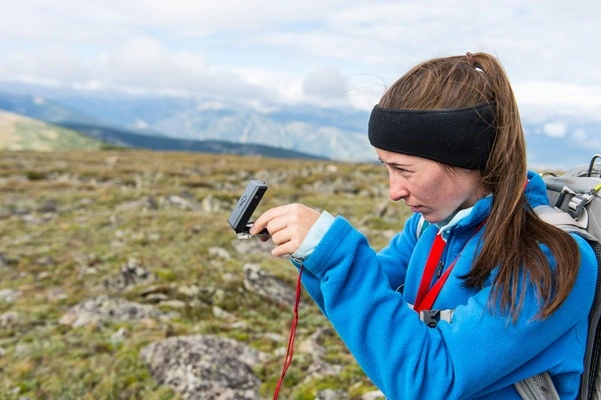
Anthropology and Geography
Overview
Anthropology is the study of human evolution, what makes us human—through examination and research of past and current civilisations. Geography is the study of the earth’s place and the relationship between people and their environments.
In simple words, geography is the study of the environment surrounding us, and anthropology is the evolution of humans.
Objectives
- Understand Human Diversity
- Examine Human Evolution
- Explore the relationship Between Culture and Society
- Understand the Impact of Globalisation and Modernity
- Understand Human-Environment Interaction
- Develop Geospatial and Analytical Skills
- Examine Social, Economic, and Political Geography
Prerequisites
- Basic understanding of biology, geography, and mathematics
- Basic knowledge of anthropology
- Language Skills
Curriculum Outline
- Anthropology in the World
- Beliefs and Ways of Thinking
- Living with Environmental Change
- Space, Place and Society
- Geography: A Controversial Discipline
- Political and Economic Issues in Anthropology
- Practising Anthropology
- Climate Politics
- Colonialism, Migration and Global Racism
- Critical Perspectives on International Development
- Ethnicity, Migration and Identity
- Ethnography in South Asia
- Ethnography of a Selected Region
- Global Health: an Anthropological Perspective
- Human Geography and Anthropology Dissertation
- Cities, Power and Social Change
- Contemporary Anthropological Theory
- Critical Perspectives on International Development
- Environmental Justice
- Environment and Sustainability
- Introduction Geographical Research and Fieldwork
Teaching Method
- Lectures
- Seminars
- Cohort meeting
Modules
- Human Geographies of the Modern World
- Key Concepts in Anthropology
- Skills and Concepts in Geography I: Becoming a Geographer
- The Anthropological Imagination
- Anthropology of Capitalism, Care and the Environment
- Geographies of Cities and Mobilities
- Skills and Concepts in Geography II: Quantitative and Analytical Skills
- Worlds and Selves
- Ethnographic Research Methods
- Global Geographies of Economic Change
- Religion and Ritual
- Understanding Global Migration
- Politics and Power
- Advanced Sustainable Development: Sustainability in Policy and Practice
- Anthropology of the Body
- Cultures of Colonialism
- Death, Dying and the Corpse
- Development, Business and Corporate Social Responsibility
- Disasters, Environment and Development
- Environmental Protest: Past and Present
- Geographies of Money, Finance, and Debt
- Geographies of Rising and Declining Powers
- Human Rights
- Mobilities and Global Inequalities
- Refugees, Migrants and Religion
- Slavery, Emancipation and Legacies
- The Anthropology of Geopolitics
- Class, Community, Nation
- Cults, Conspiracies and Political Religion
- Decolonial Movements
- Environmental Anthropology
- Global Food Security
- Political Ecology and Environmental Justice
- Race, Ethnicity and Identity
- Re-Designing Life: Anthropological Approaches to New Biotechnologies
- The global and the intimate: home cultures, belonging and personal life
Assessment Methods
- Coursework
- Exam
- Dissertation
Course Duration
The course duration may vary by institute and location. In the UK, full-time study might take about 3 to 4 years, and part-time might take about 4 to 6 years.
Facilities
- Human Evolution Labs
- Forensic Anthropology Labs
- Primate Research Facilities
- Archaeological Lab
- Excavation Materials
- Artifact Storage and Curation
- Cultural Anthropology Lab
- Digital Anthropology Tools
- Remote Sensing Labs
- Spatial Analysis Software
- Cartography Labs
- Geospatial Drones
- Hydrology and Geomorphology Labs
- Environmental Simulation Labs
- Specialised Libraries
Career Pathways
- Sustainable Development Specialist
- Cultural Resource Manager
- Human-Environment Interaction Specialist
- Environmental Risk Assessor
- Geospatial Development Analyst
- Environmental Policy Analyst
- GIS Analyst/Technician
- Cartographer
- Ecologist
- Urban Planner
- University Professor or Lecturer
- Researcher in Social Science
- Museum Curator or Archivist
Fees and Fundings
The fees may vary by university and location. However, in the UK, the tuition fees may lie between £11,000 and £30,000 a year.
Entry Requirements
- High School Diploma or equivalent
- English Language Proficiency
- Statement of Purpose
- Recommendation Letters
Field Work and Internships
- Cultural Anthropology Fieldwork
- Archaeological Fieldwork
- Biological Anthropology Fieldwork
- Physical Geography Fieldwork
- Human Geography Fieldwork
- Geospatial Fieldwork
- Urban Planning Internships
- Environmental and Conservation Internships
- Geospatial Data Analysis Internships
Certifications
- Certified Professional in Archaeology
- Certified Cultural Resource Manager
- Field Archaeology Certifications
- Humanitarian and International Development Certifications
- Certified Geographic Information Systems
- Certified Remote Sensing Professional
- Certified Urban Planner
- Certified Environmental Planner
- Certified Environmental Professional
- Certified Floodplain Manager
Intakes
In the UK, the primary intake happens in September/October, and the secondary intake happens in January/February.
Student Testimony
"Here’s the selling point… the Brunel placement year. I spent 3 months travelling Mexico, with my best friend. Yep, this dreamy version of a university placement year was my reality! In Anthropology, you can literally study anything anthropologically, anywhere. So, on a whim with my course mate, we randomly picked Mexico. " [Chrisyl Wong-Hang-Sun from Brunel University of London]
Frequently asked questions
The four fields of anthropology are archaeology, bioanthropology, linguistic anthropology, and social-cultural anthropology.
